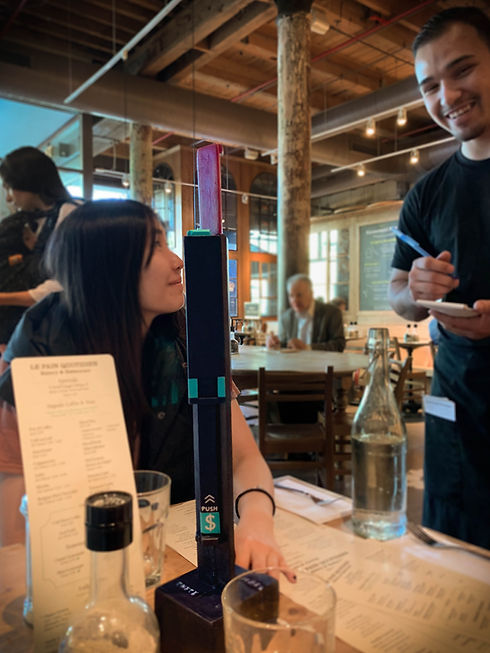A summoning system designed for restaurants in the United States, which helps servers know when patrons need attention.
Designed using qualitative research, user testings, and iterative improvements, the product reduces physical and mental stress in the servers’ routine. It also improves the patron experience by reducing interruptions in the dining.
27.4 billion disposable diapers are consumed in the US alone and they are flooding the landfills.
Wee Grow is a service design that will empower people to ensure that the steps they take to take care of the environment are implemented. This project won the top 8 position at the Biodesign Challenge world summit 2018 at the Museum of Modern Art (MoMA).
A site specific intervention on the streets of Downtown Chicago aimed at smokers.
Thought provoking design based on research and observations for reducing cigarette butt pollution. Addresses the issue of cigarette butt pollution impacting public health.
Collaboration with the government of Utrecht to design a citizen science project for improving public health.
How might we map health data for neighborhoods with the help of inhabitants of the province of Utrecht? A two weeks long design thinking summit in the Netherlands with cross- cultural collaboration seeks to address this challenge.

A qualitative research project on women's menstrual health.
Using human-centric design approach, two design concepts were developed to help reduce discomforts and stress associated with painful menstrual cramps.



